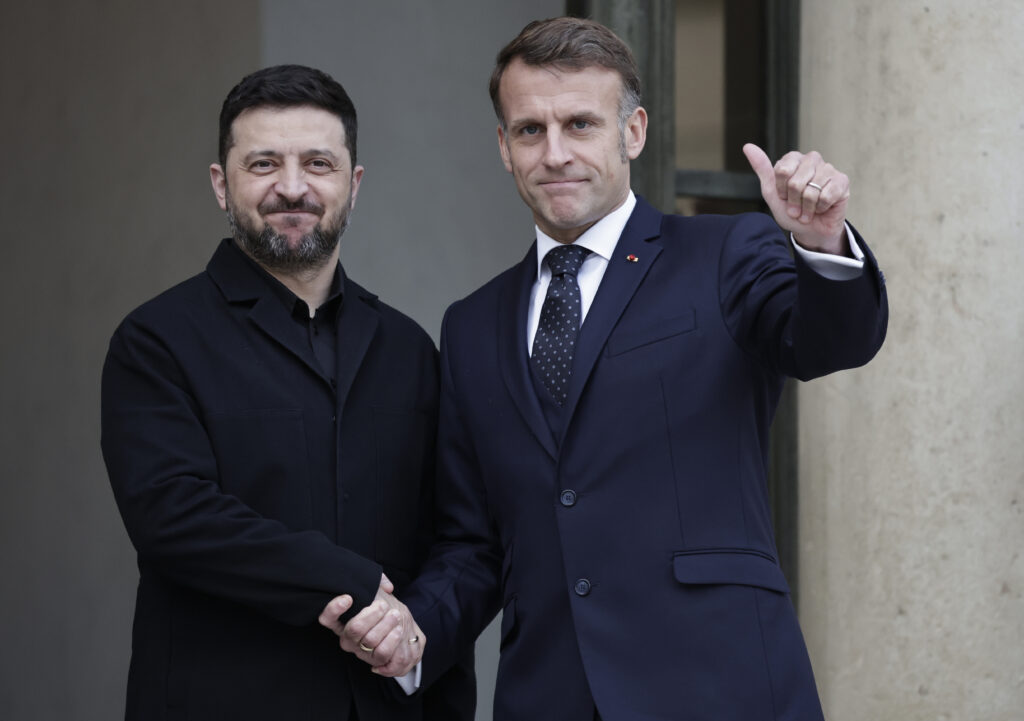Pope Leo XIV and leaders from Lebanon’s religious communities met in a show of unity on Monday, with the pontiff urging them to combat intolerance on day two of his visit.Lebanese have joyfully welcomed the American pontiff, turning out in their thousands to his public appearances and lining streets where his motorcade has passed, waving Vatican flags and sometimes ululating or throwing rice in celebration despite intermittent rain.”You are called to be builders of peace: to confront intolerance, overcome violence, and banish exclusion, illuminating the path toward justice,” Pope Leo told 16 leaders from Lebanon’s 18 officially recognised religious denominations.”In an age when coexistence can seem like a distant dream, the people of Lebanon, while embracing different religions, stand as a powerful reminder that fear, distrust and prejudice do not have the final word, and that unity, reconciliation, and peace are possible,” he added.The event in a marquee in Beirut’s Martyrs’ Square near several mosques and churches included a reading from the Koran and remarks by leaders from Orthodox churches and the Sunni, Shiite, Druze and Alawite communities, who also emphasised the importance of coexistence.While long hailed as a model of tolerance, Lebanon was devastated by a 1975-1990 civil war along sectarian lines and is still plagued by deep rifts.Leo arrived from Turkey on Sunday on his inaugural visit abroad as pontiff and brought a message of hope, particularly to young people in Lebanon whose faith in their crisis-hit country has dwindled.- ‘Never without hope’ -“For the world, we ask for peace. We especially implore it for Lebanon and for the entire Levant,” Leo said earlier Monday from a monastery in Annaya hosting the tomb of Saint Charbel, who enjoys broad popularity in Lebanon beyond the Christian community.The pontiff then visited Harissa, where a giant statue of Our Lady of Lebanon overlooks the Mediterranean from a plunging hilltop. The site also draws visitors of all faiths. A packed gathering of bishops, other religious figures and pastoral workers in Harissa’s towering basilica erupted into cheers and applause as the pontiff entered, shaking hands with people including priests and nuns, some of whom kissed his hand.Prayer “gives us the strength to continue to hope and work, even when surrounded by the sound of weapons and when the very necessities of daily life become a challenge”, the pontiff told the event after hearing testimonies from participants.”It is necessary, even among the rubble of a world that has its own painful failures”, to offer young people “concrete and viable prospects for rebirth and future growth,” he added.Many Lebanese, particularly young people, left the country after a crushing economic crisis, widely blamed on official corruption and mismanagement, began in 2019.Fears have grown in the country of a renewed war between Israel and Hezbollah despite a ceasefire in November 2024 that sought to end more than a year of hostilities.Israel has intensified strikes on Lebanon in recent weeks despite the truce, while the cash-strapped Lebanese government is under heavy US pressure to disarm the Iran-backed militants.- Youth meeting -Tony Elias, 43, a priest from the village of Rmeish along Lebanon’s border with Israel, said that “we have lived through nearly two and a half years of war, but have never been without hope.”Leo “has come to confirm that what we have gone through has not been in vain, and we believe that he brings a real message of peace — a living peace”, he told AFP.The pope is to meet young people at the patriarchate of Lebanon’s Maronite church in Bkerke, outside the capital.More than 10,000 people aged 16 to 35 have registered to attend, according to organisers, including more than 500 from abroad. “Everyone goes to Rome to see the pope, but he has come to us,” said housewife Therese Daraouni, 61, who had waited along the roadside to see Leo.”This is the greatest blessing, and the greatest grace and hope for Lebanon. I hope people unite for the sake of Lebanon and its people,” she told AFP.Yasmine Chidiac, who was hoping to catch sight of Leo, said the trip “has brought a smile back to our faces”.Authorities have proclaimed Monday and Tuesday official holidays, and ramped-up security measures include road closures and a ban on drone photography.








